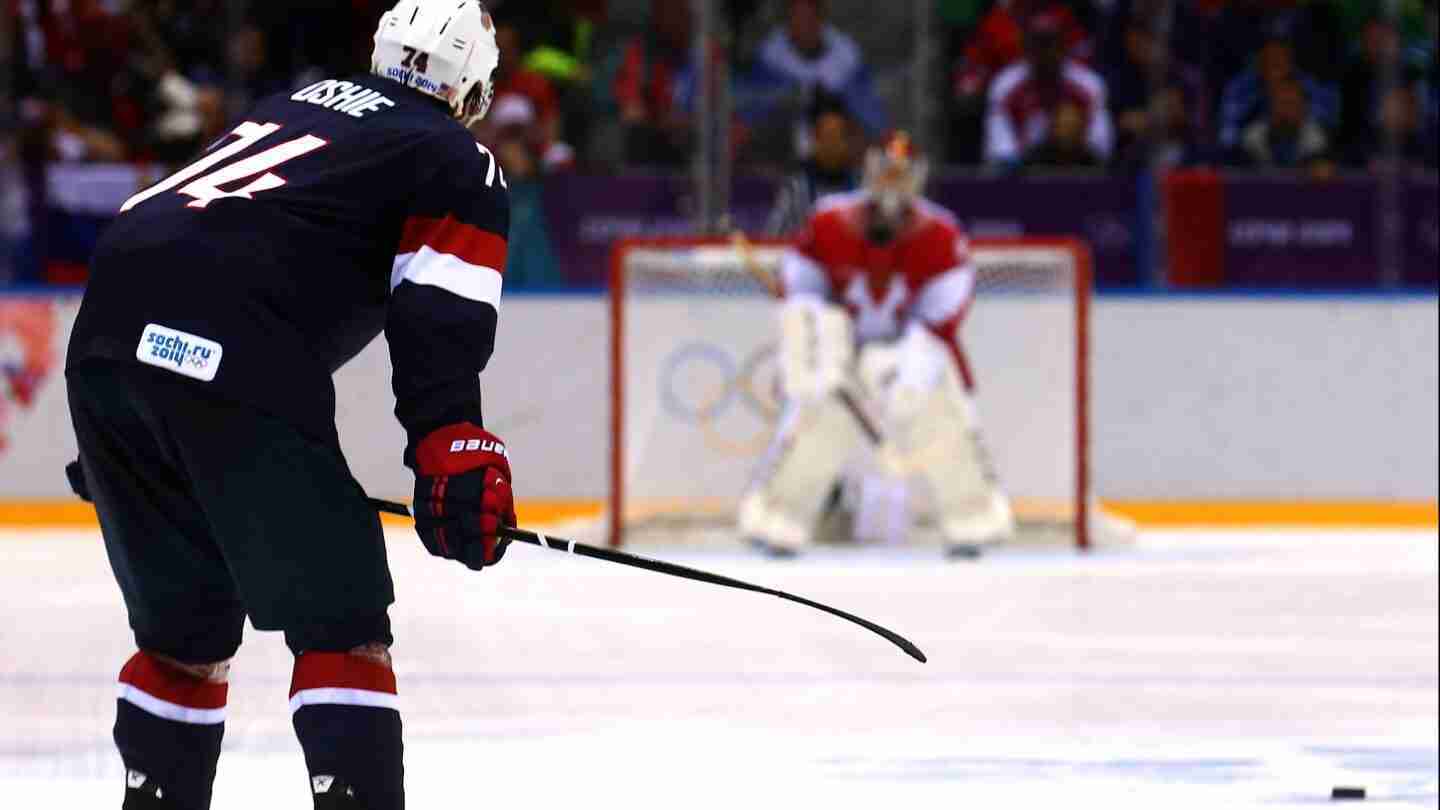Going to the Olympics was a life-changing experience for TJ Oshie, penalty shootout star for the United States against Russia in Sochi.
Oshie and dozens, if not hundreds, of NHL stars are disappointed they won’t get the chance to do it again at the 2018 Winter Olympics in South Korea. He would like to guarantee Olympic participation in the future – but not at any cost.
“For what purpose, like what, should we give it up? » said Oshie. “Now you’re taking into account a whole league of players and families who stand to lose anything. …What we give up would affect everyone. This is a difficult speech.
Since participation in the Olympics was not written into the collective bargaining agreement signed in 2013, the decision was up to the NHL owners, who decided not to travel to Pyeongchang after the league had participated in the previous five Games. With the first chance for players or owners to opt out of the CBA in two years, the Olympics, escrow payments and draft age appear to be among the hot topics.
Learn more:
Ovechkin: ‘It sucks’ NHL players won’t be allowed to play in 2018 Olympics
McDavid disappointed with NHL decision to skip Olympics
NHL Players’ Association executive director Donald Fehr said the owners’ choice to skip the 2018 Olympics “is a thorn, a wound” for players and “will not be forgotten.”
“I think it’s clearly something that players will want to think long and hard about when they get to the point of formulating their positions,” Fehr said. “I wouldn’t be at all surprised if they wanted to make this an issue that they felt very strongly about in terms of overall agreement, because you have to remember that while it’s true that around a fifth of the players play in a special set of At the Games, everyone would love to have the opportunity to go.
Dallas Stars center Tyler Seguin said not going to the Olympics “makes you angry.” Seguin added: “We’re going to have to find something for future players and for our future in general as a game.”
The future of the sport will likely involve an increase in international events that will help increase revenues and expand hockey’s influence across the world. The Los Angeles Kings and Vancouver Canucks recently played in Shanghai and Beijing, site of the 2022 Olympics, while the NHL tried to make inroads in China.
The NHL and NHLPA hosted the return of the World Cup of Hockey last year in Toronto, and the Colorado Avalanche and Ottawa Senators will play two games in Sweden in November.
Fehr said the NHL “has shown a lot more interest in China for some time” than in Korea. But Commissioner Gary Bettman said in several meetings with Chinese companies and government entities “none of them asked about the Olympics because what we do doesn’t last about two weeks” .
The NHL is interested in China and it wouldn’t hurt players’ Olympic chances if Salt Lake City or Calgary clinch the 2026 Winter Games, but the question of guaranteeing participation is not an easy subject for negotiations future.
“For us to say there is a change of heart, obviously there will have to be a change in circumstances, including how the (International Olympic Committee) and the (International Ice Hockey Federation ) perceive our participation,” said Bettman, who noted that neither side is currently focused on reopening CBA negotiations.
“I have no idea what the Players Association will raise in this regard. But we made it clear in the last round of negotiations that we needed to be able to not go to the Olympics because we understood how disruptive they were to the season.
After 147 NHL players participated in Sochi, most locker room reactions to the NHL’s decision regarding Korea were not positive. At the very least, a handful of players said they’d like to know in advance about the Olympics so it doesn’t come down to the wire like last time.
“I think it’s important that we address this issue so that it’s a resolved issue, whether we don’t go there or whether we go there,” Anaheim Ducks center Ryan Getzlaf said. “I don’t think we want to leave that open to interpretation every year.”
One thing that hasn’t been open to interpretation since 2013 is that players have a portion of their salary tied up to make up for the 50/50 split of revenue with the owners. Last season, players had 15.5 percent of their salaries withheld and many expressed dissatisfaction with the system.
Fehr said changes could be made to the escrow system, but added that he’s always been of the opinion that salary caps “cause all kinds of problems.” The NHL and NHLPA implemented a salary cap following the 2004-05 lockout that wiped out a season, and Bettman is proud of the competitive balance it created.
“That’s why we fought so hard and we were determined to get a system that would allow all of our teams to be competitive,” Bettman said.
Another topic likely to spark discussion is raising the draft age from 18 to 19. Former player and current special assistant to NHLPA executive director Mathieu Schneider said it can be positive, but he knows there are challenges in changing it, as the NBA has done several times. times. years ago.
Fehr, who served as executive director of the Major League Baseball Players’ Association from 1985 to 2009 and led the NHLPA for the past seven years, said preparations for the next round of negotiations are underway. will intensify after the executive council meeting next summer. With many conversations still to be had, he thinks it’s too early to say what the central issues will be when things play out.
“You can make guesses, you can sometimes make educated guesses and every once in a while you’ll be right,” Fehr said. “But it’s a hazardous prospect.”
